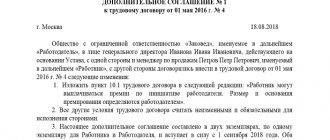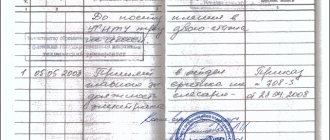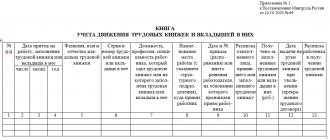The labor legislation of the Russian Federation establishes and regulates the relationship between employer and employee, leaving each party the right to legally protect and defend its interests. The resolution of labor disputes usually takes place within the framework of the Labor Code of the Russian Federation, the Constitution and some other normative legal acts. As practice shows, this category is the most complex and confusing, so the help of a competent lawyer will be useful at any stage of conflict resolution. Today we will try to consider the main types of labor disputes and the procedure for resolving them, and also discuss the prospects for considering some situations in court.
Labor dispute and its essence
According to current legislation, a labor dispute is a conflict that has arisen between an employee (a group of employees) and an employer regarding long working hours, working conditions, changes in routine, payment mechanism and many other issues. It is important to understand that a labor dispute is a very specific situation, which almost always requires an individual approach and careful analysis. Sometimes the conflict goes so far that it becomes impossible to resolve it without the involvement of regulatory or supervisory authorities.
Practice shows that the cause of a dispute is the employer’s regular or prolonged violation of the basic provisions of the Labor Code of the Russian Federation. This could be failure to comply with the terms of the contract, violation of generally accepted labor protection standards, fraud in the payment of wages, and much more. The most common conflicts include non-payment of wages, involving pregnant women on night shifts, and preventing an employee from going on vacation.
Resolution of individual labor disputes
An individual dispute is a conflict that arises between one employee of an organization/enterprise and management regarding the issues and actions of either party. The procedure for resolving such disputes is regulated by Article 60 of the Labor Code of the Russian Federation. The provisions of the regulatory document clearly define the essence of the labor dispute, the specifics of the solution, and establish the competent authorities that should deal with conflict situations. The procedure for appealing decisions made, including in court, is also indicated here.
The provisions of Articles 383-392 of the Labor Code regulate the procedure for resolving controversial situations and establish the following procedure for considering a dispute:
- An attempt at voluntary reconciliation between the employer and employee during their personal meeting or meeting of legal representatives. If the discussion results in a consensus, the next steps in resolving the dispute become irrelevant. If it is not possible to reach a consensus, the dispute is transferred to the next stage.
- This stage is an appeal to the commission for resolving labor disputes. This structure is organized from representatives of the staff and administration of the organization in equal shares. The commission has a seal and the authority to conduct necessary investigations and proceedings at the expense of the employer. After considering the arguments of the parties, the commission determines the legality of the actions and demands of each party, making a reasoned decision.
- If the decision of the labor commission did not satisfy the expectations of the parties or did not allow the disputed situation to be resolved, the last resort remains - the court. It is important to remember that the basis for considering a labor dispute in court is not only the disagreement of one of the parties with the decision made, but also obvious violations of the law when considering the conflict by members of the labor commission. This may be failure to comply with the deadline for consideration or violation of the secrecy of voting. In this case, we recommend using the help of a competent lawyer, because labor legislation changes too often and it is extremely difficult to think through a competent strategy for protecting your rights and interests.
Another important point is that each of the bodies listed in the list deals with a labor dispute only if the previous authority committed violations or one of the parties completely disagrees with the decision made. Skipping any of the stages (for example, going to court after it is impossible to reach an agreement with the employer in person) is unacceptable, because the current regulations clearly define the procedure for interaction between the employee and the employer in conflict situations.
Where to contact
To resolve a labor dispute, you need to know where to address the problem. If in the case of a collective dispute, employees can hold a meeting, elect a representative and begin the reconciliation process, then it is more difficult for an individual employee in this matter. Here are several options where you can turn to regarding a labor dispute in Moscow:
- to the labor dispute commission, if there is one at the enterprise or organization;
- to Rostrud;
- to court.
On the official website of Rostrud, without a personal visit, you can submit a letter explaining the essence of the problem. You can also contact us through the Onlineinspektsiya.rf portal. These options are optimal for those who do not have the opportunity to come in person to regulatory organizations or are afraid to do so. All requests received through the portals are considered without fail. As for the question of where to file a claim if you want to resolve a labor dispute through the court, it is important to act in accordance with the jurisdiction.
If you are at a loss and don’t know where to start protecting your interests, contact us. An experienced lawyer will carefully study your issue and tell you where to start and how to achieve justice in a short time with minimal financial costs.
Resolution of collective labor disputes and their essence
The essence of a collective labor dispute is described in Chapter 61, Article 398 of the Labor Code of the Russian Federation. This is understood as a conflict of interest that has arisen between a group of employees and the management of the organization (their representatives). The basis for the emergence of such a conflict situation may be the employer’s refusal to make a decision of the trade union organization, a change in the previous ones or the introduction of new working conditions. As in the case of individual disputes, the resolution of collective conflicts involves the use of conciliation procedures:
- The conflict situation is considered by members of a special conciliation commission, which is created for a short term specifically to resolve the labor dispute that has arisen.
- Involving mediators who, by virtue of their powers, can lead the parties to a compromise. The mediator can use any methods and methods to resolve the conflict that do not contradict current legislation. The best option is to find a solution that would be beneficial for both parties.
- Labor arbitration, created both from representatives of the employer and the team of employees, and authorized government bodies.
The procedure for moving from stage to stage is similar to that for resolving individual disputes. This is possible only in the absence of a satisfactory decision from the previous authority. If conciliation procedures and consideration of the issue in labor arbitration do not bring the expected result, the law reserves the right of workers to strike.
According to current legislation, a strike means a temporary refusal of workers to perform their job duties until the employer takes certain measures to resolve the conflict. As a rule, a strike is the most extreme measure, which can negatively affect both the moral climate in the team and its economic performance. It should be understood that even short-term downtime at a large enterprise entails serious losses, so when resolving collective disputes, it is necessary to resolve the conflict peacefully by all possible means.
Where and how are they regulated?
A collective labor dispute is an unresolved disagreement between employees and the employer regarding:
- establishing and changing working conditions;
- concluding, amending and implementing collective agreements;
- refusal of the employer to take into account the opinion of the representative body of employees when adopting a local regulatory act.
The procedure for putting forward and considering workers' demands, conciliation procedures in labor law are regulated by Chapter 61 of the Labor Code.
The workers' demands are approved for further consideration at a meeting or conference and sent to the employer in writing by the workers' representative body. The demands of trade unions and their associations are put forward by elected collegial bodies and sent to the parties to the social partnership at the appropriate level (sectoral, regional or federal). The employer is obliged to consider the requirements received and report its decision in writing within two working days from the date of receipt (Article 400 of the Labor Code of the Russian Federation). Employers' associations review claims within three weeks.
If the employer refuses to consider and satisfy the demands of employees, a collective labor dispute begins. In order to resolve disagreements that have arisen, conciliation procedures are carried out when resolving collective labor disputes.
Resolutions of the Ministry of Labor have developed recommendations for organizing the work of bodies specially created by the parties to the conflict to resolve it. All procedures are carried out within the time limits established by law.
Consideration of labor disputes in court
Transferring an emerging labor conflict to the courts is a last resort. The interested party reserves the right to file a claim in court if:
- The Labor Dispute Commission violated the deadline for making a decision. According to the law, this period is limited to 10 days from the date of application by the employee, who did it himself or used the help of a legal representative.
- The employee does not agree with the decision made by the commission. It is important to remember that an employer who considers a decision of an independent body to be illegal or violates legitimate interests also has the right to go to court.
- A prosecutor's investigation was carried out to determine whether the decision taken by the labor commission was unlawful.
Important! The court cannot independently order the consideration of a dispute without an application from one of the interested parties. The period for filing an application is limited to 3 months from the date of the dispute. We recommend that you do not rely solely on your own efforts, but consult a lawyer on labor law. This area is complex, and each conflict is considered individually, taking into account many circumstances!
Conciliation commission
All conciliation procedures in collective labor disputes are carried out in a strictly established sequence. The first of them is the consideration of a collective dispute by a conciliation commission. This is a required step.
The work of this body is organized in accordance with Art. 402 Labor Code of the Russian Federation. Resolution of the Ministry of Labor dated August 14, 2002 No. 57 approved recommendations for organizing the work of the commission and the forms of protocols.
The decision to create it at the enterprise is formalized by an order of the employer and a decision (protocol) of the representative body of workers. When resolving conflicts at another level (in an industry, in a municipality, in a subject of the Federation) - by acts of associations of employers and employees.
The employer is obliged to create the necessary conditions for the work of the conciliation commission: consider applications, allocate a room for meetings, equipped accordingly (heating, lighting, communications and office equipment).
The decision is made by agreement of all members of the commission and is documented in a protocol binding on both parties. It specifies the deadlines for fulfilling obligations. If it is not possible to agree on all or part of the requirements, then a protocol of disagreements is drawn up. If, based on the results of consideration of the conflict, it was possible to reach an agreement, then a protocol of the meeting is drawn up.
Customer Reviews
Gratitude from Bolotin V.S. I thank Alexander Viktorovich Pavlyuchenko for the work done as part of the investigation into the administrative case. I am especially grateful that almost all activities within the framework of the case were carried out by Alexander personally, without my involvement, which significantly saved my time. I would also like to note the efficiency with which the work was completed. I would like to wish Alexander further success in his professional activities and the successful completion of all current and subsequent cases, restoring justice to his clients.
Bolotin V.S., 02/12/2017
Thanks to Mavrichev S.V. from Bars Dan A. I thank the wonderful Lawyer Sergei Vyacheslavovich Mavrichev for thorough, competent advice and human mutual assistance to all his clients who are in deep need of qualified and timely legal and psychological advice.
Leopard Dana A. 09/18/2018
Review by Minina M.V. I would like to express my deep gratitude to Yuri Vladimirovich Sukhovarov for his competent advice and qualified assistance on my issue.
With gratitude, Minina Margarita Vladimirovna.
Gratitude from Marina Kuleshova I express my deep gratitude to Alexander Viktorovich Pavlyuchenko for his competent legal work and professionalism, as well as to his assistant Elena Vladimirovna for the qualified assistance provided. I wish you prosperity and achievement of professional heights.
Sincerely, Marina Kuleshova. 08/15/2018
Thanks to Pavlyuchenko A.V. from Astafieva A.S. I express my gratitude to the Legal Agency and in particular to lawyer Alexander Viktorovich Pavlyuchenko for the work done, high qualifications and high-quality approach. Thanks to Alexander Viktorovich, we managed to achieve a result in court in a case on the protection of consumer rights that I did not even expect. The amount recovered in court even exceeded my expectations. Thank you very much for your qualified work and professionalism.
Sincerely, Astafieva A.S., 03/01/2019
Gratitude from Truk N.N. I would like to express my gratitude to Vasily Anatolyevich Kavalyauskus, Alexander Viktorovich Pavlyuchenko and Maxim Andreevich Lobur for providing qualified legal assistance, with the help of which my problem was resolved quickly and clearly. When contacted, I always found understanding and attention. It’s good that the “Society for the Protection of Consumer Rights” employs such lawyers and advocates. I wish you success in your future work and defending the interests of consumers.
Sincerely, Truk N.N.
07.05.2018
Thanks to Kavaliauskas V.A. I would like to express my deep gratitude to Vasily Anatolyevich, an employee of your company, for his enormous support and competent defense of my case. And also for having a good attitude towards people. I will recommend your organization to all my friends and family.
I wish you success and prosperity,
05/14/2018
Gratitude from Potapova T.I. I express my gratitude to Denis Yuryevich Stepanov for the work done, high qualifications, as well as for very clear, accessible help in solving my problem (protection of consumer rights). Excellent, very competent lawyer. Thank you very much!
Sincerely, Potapova Tamara Ivanovna, 07/09/2019
Review by Egorova A.N. I, Egorova Antonina Nikolaevna, am very pleased with the consultation of Yuri Vladimirovich Sukhovarov. Thank you for your attentiveness and understanding. I wish you further professional growth.
Review by Irina D. I thank the Legal Agency of St. Petersburg for the warm, sincere welcome and the detailed, competent, thorough, conscientious legal position of lawyer Andrei Valerievich.






